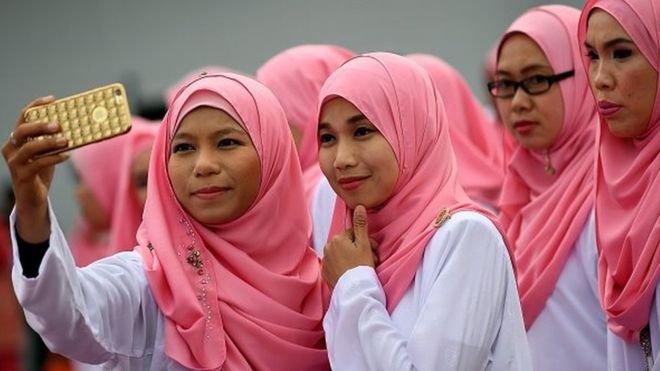When a 15-year-old Malaysian girl voiced her dream of becoming the country's first female prime minister on Twitter earlier this year, she was roundly abused online for not donning the hijab. Surekha Ragavan asks if Malay Muslim women encounter more rage on social media.
It's no secret that women everywhere are vulnerable to abuse online. In Malaysia, women of all races face abuse, but activists say Muslim women are particularly targeted because of certain societal expectations.
"We are seeing a trend where Muslim women [particularly Malay-Muslims] are targeted in a different way, especially when it comes to how they present themselves," says Juana Jaafar, a women's rights advocate who followed the case of the 15-year-old girl. Ms Jaafar says the attacks became so brutal for the girl, she was forced to delete her account and seek help offline.
"Certainly if you have a Malay name, you become immediately visible."
So what could be uniquely at play here? Well, in many conservative communities here, the "jaga tepi kain" culture, or the culture of minding your neighbour's business, is commonplace.
This idea of "airing one's dirty laundry in public" has noticeably seeped into online spaces as well, encouraged in part by thriving Malay language tabloid and gossip sites.
But it's more a cultural issue than a religious one. Ms Jaafar said, "The religion doesn't encourage the ["jaga tepi kain"] behaviour. There are hadiths that talk about respecting privacy."
'They would find faults on my body'
"These things happen globally, but it does come with an extra layer [in Malaysia], a sense of moral justification that is rooted in quite narrow interpretations of religion," says Dr Alicia Izharuddin, senior gender studies lecturer at Universiti of Malaya.
Hi! I am a robot. I just upvoted you! I found similar content that readers might be interested in:
http://www.bbc.com/news/world-asia-40337326
Can this close my account?